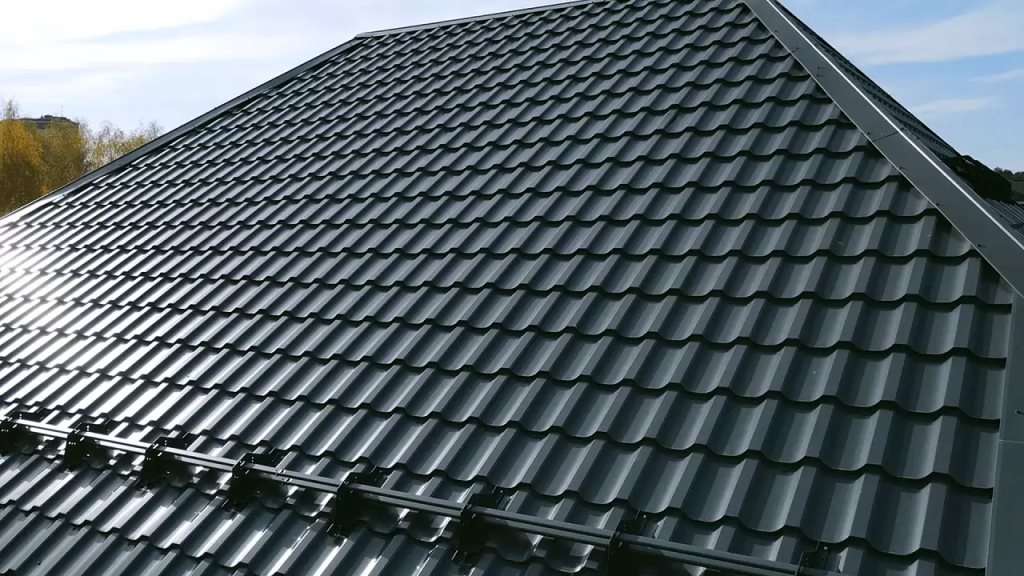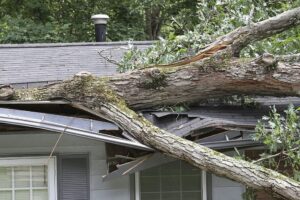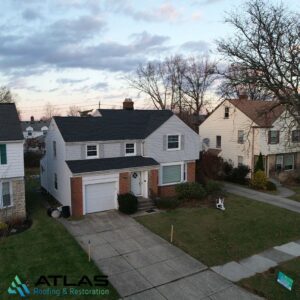When it comes to protecting your commercial property, few investments are as critical as the roof. A high-quality roof can last for many years, but like any other component of your building, it requires regular maintenance and sometimes repair or replacement. One of the most important factors to consider when installing or replacing a commercial roof is the warranty options available. Roof warranties provide peace of mind, ensuring that your roof will be covered for certain issues that may arise after installation. However, not all warranties are created equal, and understanding the various options can help you make an informed decision.
In this blog, we will explore the types of roof warranties available for commercial properties, what they cover, and the factors you need to consider when choosing the right warranty for your business.
What is a Roof Warranty?
A roof warranty is a guarantee provided by the roofing manufacturer or contractor that outlines the terms and conditions for repairing or replacing your roof if specific problems occur within a given timeframe. Roof warranties typically cover issues such as defects in materials or faulty installation. Depending on the type of warranty, it may also cover damages caused by natural disasters or other unforeseen events.

A warranty provides business owners with financial protection against unexpected repair costs and can help minimize disruptions to business operations. Without a proper warranty, property owners may be forced to pay out-of-pocket for repairs that could otherwise be covered under a warranty plan.
Types of Roof Warranties for Commercial Properties
Understanding the different types of roof warranties available is crucial to making an informed decision about which option is right for your commercial property. There are three primary types of roof warranties: manufacturer’s warranty, workmanship warranty, and comprehensive warranty. Let’s take a closer look at each.
1. Manufacturer’s Warranty
A manufacturer’s warranty is typically provided by the roofing material manufacturer and covers defects in materials or workmanship. This type of warranty is designed to protect the property owner in case there are issues with the roofing materials themselves, such as premature wear, cracking, or deterioration.
There are generally two main categories of manufacturer’s warranties:
- Materials Warranty: This covers defects in the roofing materials themselves. If the roofing material is found to be defective or fails prematurely, the manufacturer will replace the material at no cost. However, it’s important to note that the warranty may only apply to specific types of damage, and it often excludes issues like poor installation or damage from external factors like storms or accidents.
- Roofing System Warranty: This is a more comprehensive warranty that covers the entire roofing system, including the materials and installation. It typically ensures that the roof will perform as expected for a certain period, typically ranging from 10 to 30 years, depending on the materials and manufacturer.
2. Workmanship Warranty
A workmanship warranty is offered by the roofing contractor and covers errors in installation or workmanship. Even the best roofing materials can fail if they’re not installed properly. This warranty ensures that if there are problems with the installation — such as improper sealing, flashing issues, or poor attachment of materials — the contractor will cover the costs of repairs or reinstallation.
Workmanship warranties typically range from 1 to 10 years. The length of the warranty can vary depending on the contractor and the complexity of the roofing system. It’s important to verify the details of the workmanship warranty, as some contractors may provide limited coverage, and not all installation errors are covered under this type of warranty.
3. Comprehensive Warranty
A comprehensive warranty, also known as a “no dollar limit” (NDL) warranty, is the most extensive type of roof warranty available. This warranty combines both the manufacturer’s warranty and the workmanship warranty, providing a holistic coverage plan for both materials and installation.
The comprehensive warranty covers almost all potential issues with the roof, including material defects, installation errors, and even damage caused by natural elements like wind, hail, or heavy snowfall. However, it typically comes at a higher cost than the other types of warranties. The comprehensive warranty may last 20 to 30 years or even longer, providing the best long-term protection for commercial property owners.
What Roof Warranty Options Should Commercial Property Owners Consider?
Choosing the right warranty depends on the specific needs of your commercial property, the roofing materials used, and your long-term goals. Here are some factors to consider when selecting the best warranty for your property:
1. Type of Roofing System
The type of roofing system you choose will significantly impact the warranty options available to you. Different materials, such as asphalt shingles, TPO, EPDM, and metal roofs, may come with varying warranties depending on the manufacturer. It’s important to understand the lifespan and durability of the roofing system you select, as well as the level of protection offered by the manufacturer’s warranty.
For example, a metal roof may have a longer lifespan and a better warranty than an asphalt shingle roof, but it may also come at a higher installation cost. Consider the trade-offs in terms of initial investment and long-term savings.
2. Climate and Environmental Factors
The climate in your area will also play a role in determining which type of warranty is best for your commercial property. If your property is located in a region prone to extreme weather conditions, such as heavy rain, hail, or high winds, it may be worthwhile to invest in a comprehensive warranty that covers storm damage.
In areas with harsh winters, you’ll want a roofing system that can withstand freezing temperatures, snow, and ice, and a warranty that includes coverage for ice damming or other weather-related issues. Be sure to discuss your environmental concerns with your contractor to select the most appropriate warranty.
3. Maintenance Requirements
Roof warranties often require regular maintenance to remain valid. Many warranties stipulate that property owners must perform routine inspections and maintenance to ensure the roof remains in good condition. This can include tasks such as clearing debris, checking for leaks, and inspecting the flashing and seams.
Make sure to ask your roofing contractor about the specific maintenance requirements of the warranty you choose. Failure to maintain your roof according to the warranty terms can result in the voiding of the warranty.
4. Transferability
In some cases, you may want the option to transfer the roof warranty to a new owner if you sell the property. A transferable warranty can increase the resale value of your commercial building, as potential buyers will know that the roof is covered for a certain period.

When selecting a warranty, ask whether it is transferable and if there are any associated fees. Not all warranties are transferable, and those that are may require specific steps to transfer the coverage.
How to Make Sure Your Roof Warranty is Valid
Once you’ve chosen the right warranty for your commercial roof, it’s important to take steps to ensure the warranty remains valid throughout its duration. Here are a few key tips to keep your warranty intact:
- Regular Inspections: Schedule periodic roof inspections to check for damage or wear and tear. This will help identify potential issues before they become major problems.
- Timely Repairs: If you notice any damage, make sure to have it repaired quickly by a qualified contractor to avoid voiding your warranty.
- Document Everything: Keep a detailed record of all inspections, repairs, and maintenance activities. This documentation may be required if you need to file a warranty claim in the future.
Conclusion
Choosing the right roof warranty for your commercial property is a crucial decision that can protect your investment for years to come. Understanding the different types of warranties — manufacturer’s, workmanship, and comprehensive — and considering factors such as the type of roofing system, climate, and maintenance requirements will help you make an informed choice. Be sure to work with a reputable contractor and manufacturer to ensure that your warranty provides the best possible coverage for your property.
At Atlas Roofing & Restoration, we understand the importance of choosing the right roofing system and warranty for your commercial property. Our team is dedicated to providing high-quality roofing services that not only meet but exceed your expectations. Whether you need a new roof installation, roof repair, or help navigating warranty options, we’re here to assist you every step of the way. Let us help you protect your commercial property with a reliable and durable roofing solution.
Contact Atlas Roofing & Restoration today for a consultation and to learn more about how we can meet your roofing needs.




